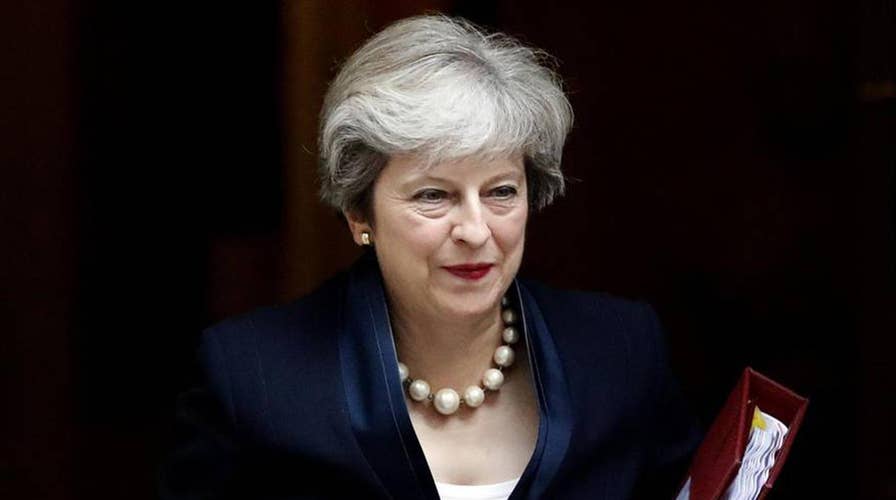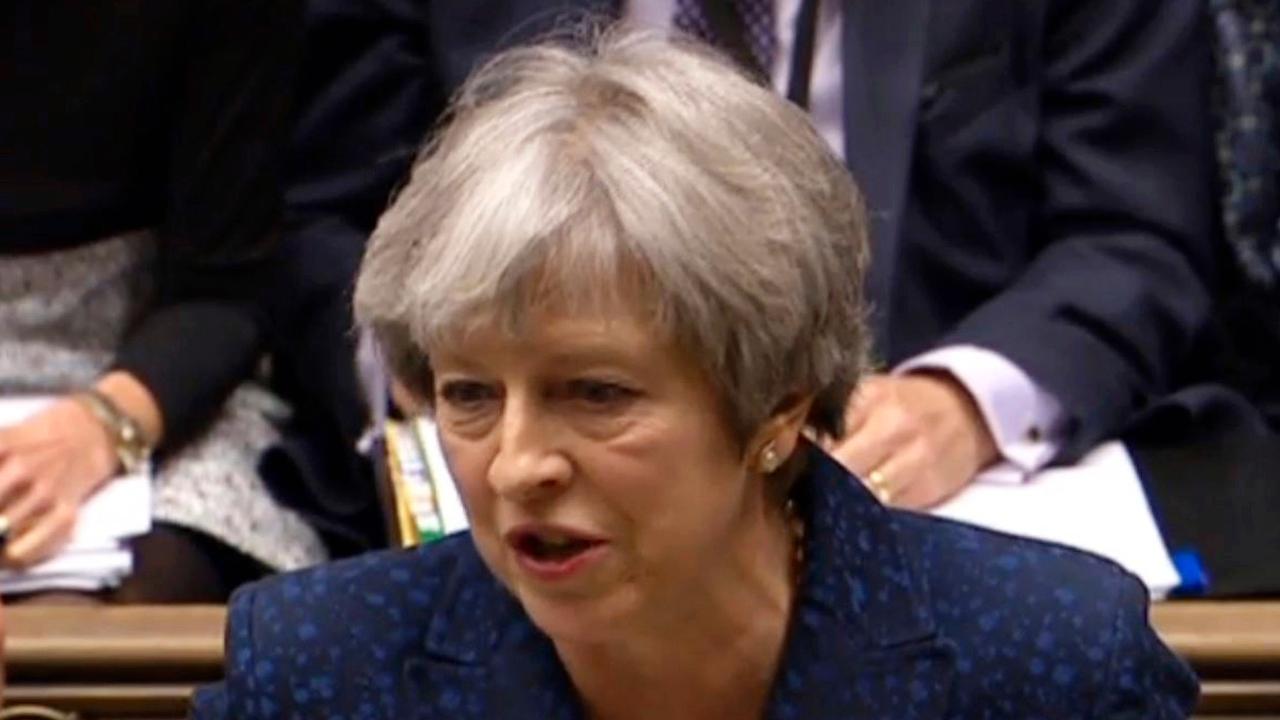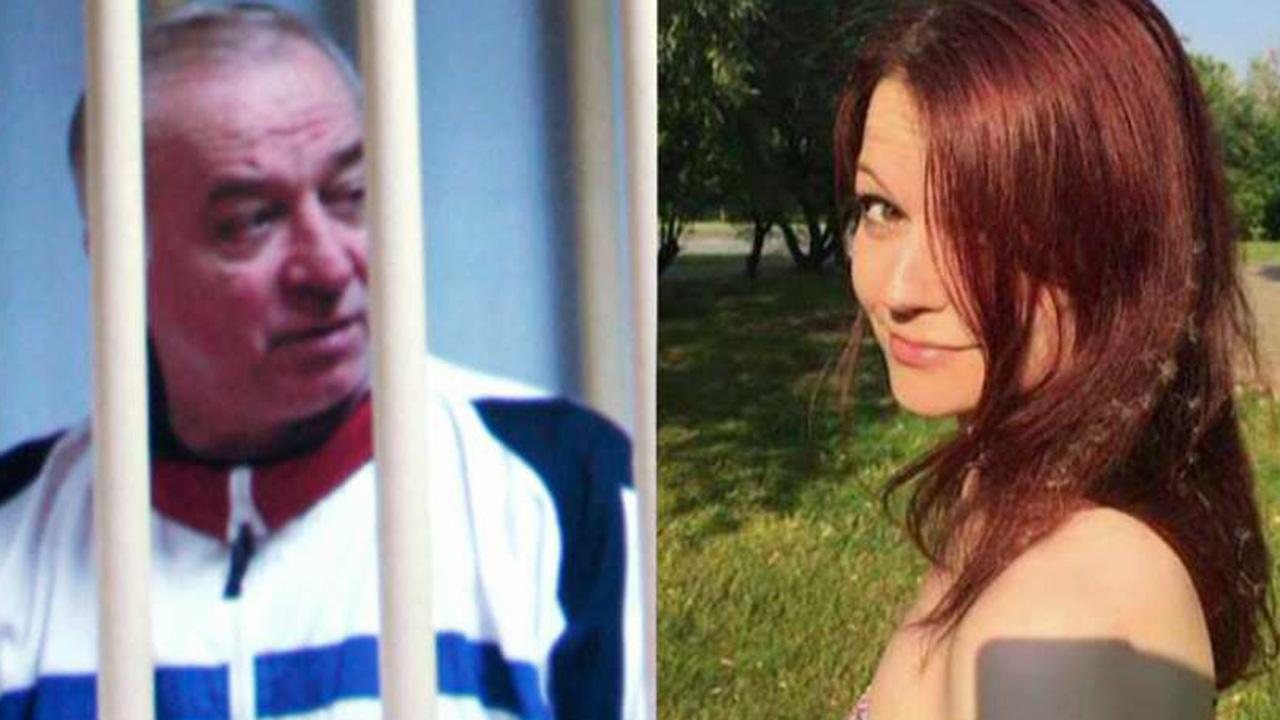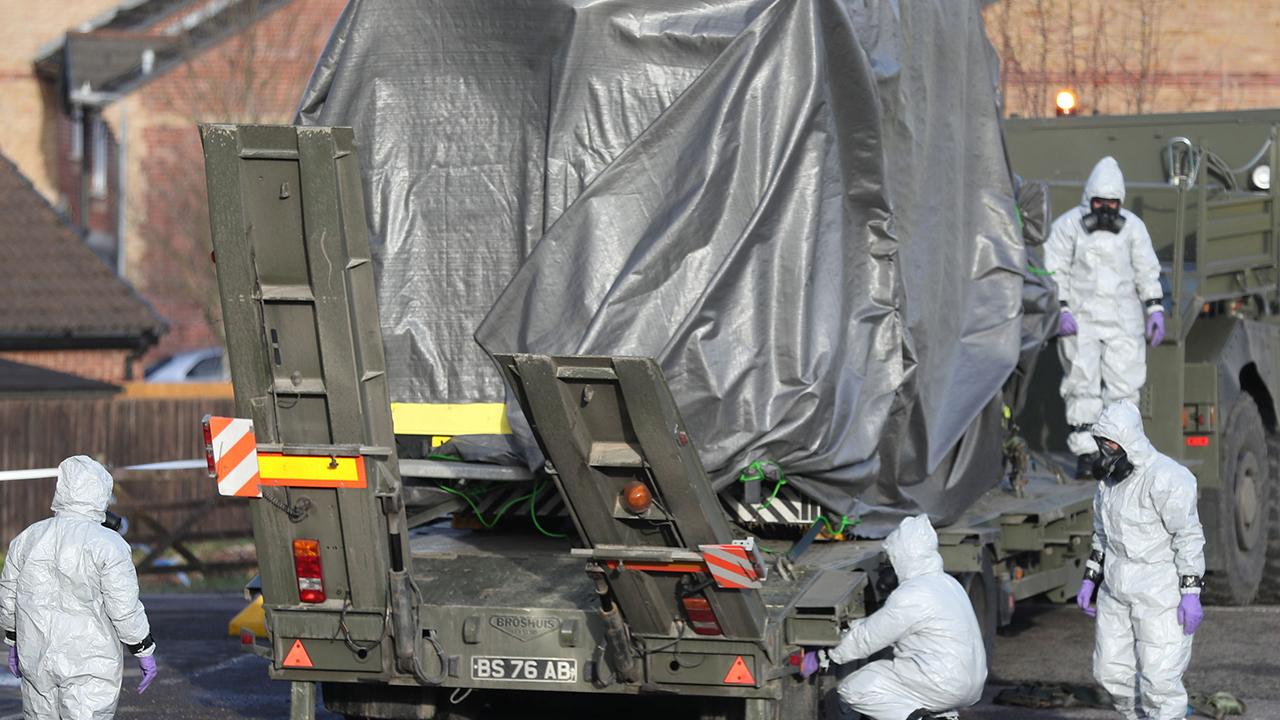Britain considering 'extensive measures' against Russia
Prime Minister Theresa May says it is highly likely that Russia is responsible for poisoning a former spy with military-grade nerve agent in southwestern England; Rich Edson reports from the State Department.
British Prime Minister Theresa May on Monday delivered a fiery denunciation of Moscow's alleged assassination attempt on a former Russian spy living in the UK, and promised consequences for the Kremlin if Russian president Vladimir Putin didn't explain himself by a midnight deadline.
But if midnight comes and goes and Russia continues to deny any involvement in the plot...what happens?
The Kremlin appears ready to find out.
Russian Foreign Minister Sergey Lavrov told reporters Moscow is "not to blame" and the Kremlin would only cooperate with an investigation if Russian authorities are given a sample of the nerve agent believed to have been used in the poisoning of the ex-spy and his adult daughter. Lavrov said all requests have been denied thus far – calling it a violation of the Chemical Weapons Convention, which outlaws the production of chemical weapons.
He suggested London would be “better off” complying with its international obligations “before putting forward ultimatums.”
RUSSIA 'HIGHLY LIKELY' BEHIND EX-RUSSIAN SPY POISONING, MAY SAYS
May, in a dramatic display Monday, said Russia's involvement in the attempted murder of Sergei Skripal, 66, and his 33-year-old daughter, Yulia, was "highly likely," and castigated Moscow for the “indiscriminate and reckless act against the United Kingdom, putting the lives of innocent civilians at risk.”
“We will not tolerate such brazen attempt to murder innocent civilians on our soil," she said.
May promised the lack of a credible explanation on Russia's part would mean the nerve agent attack would amount to “an unlawful use of force by the Russian state against the United Kingdom.”
One of the first retaliatory steps the United Kingdom could take is to expel a number of Russian diplomats from the country, as the government did after former Russian security agent Alexander Litvinenko died after being poisoned with radioactive tea in London in 2006.
EX-RUSSIAN SPY SERGEI SKRIPAL ALLEGEDLY POISONED: WHAT TO KNOW
Perhaps the U.K. could also launch a covert cyber-offensive against the Kremlin.
Any direct action may be covered by the United Nations charter, which allows for legitimate self-defense, the Guardian reported.
Additionally, U.K. lawmakers could submit legislation amendments to pass the British version of the 2012 U.S. Magnitsky Act, which punishes Russians involved in corruption and human rights violations with asset freezes and travel bans.
This particular action would be highly symbolic due to the United States’ adoption of the sanctions.
Another symbolic move could be made by officials and dignitaries choosing to boycott the FIFA World Cup in Russia this summer.
The BBC reported that by framing the poisoning as a possible “unlawful use of force,” May prompted questions as to whether the government could invoke Article 5 of NATO’s policy of collective defense, which states an attack on any one NATO ally is seen as an attack on all.
The British government has played down any suggestions that Article 5 could or would be invoked -- but NATO has called the attack “horrendous and completely unacceptable.”
“The U.K. is a highly valued ally, and this incident is of great concern to NATO. NATO is in touch with the U.K. authorities on this issue,” NATO Secretary General Jens Stoltenberg said in a statement.
EX-RUSSIAN SPY POISONING PROMPTS WARNING FOR HUNDREDS AFTER NERVE AGENT TRACES FOUND
Foreign Secretary Boris Johnson said Tuesday that Britain is also talking to its international partners about the situation.
"I've been encouraged by the willingness of our friends to show support and solidarity," he said.
Skripal and his adult daughter remain in critical condition following the March 4 attack. Both were found comatose on a bench near the city center.
Skripal, a former Russian military intelligence officer, was convicted of spying for Britain and then released in a spy swap. He had been living under his own name in the small city of Salisbury for eight years before the attack without attracting any public attention.
A police detective who also became ill from the nerve agent was still hospitalized in serious condition Monday, but is reported by British officials to be sitting up and talking.
The Associated Press contributed to this report.




